#li bo wen
Text
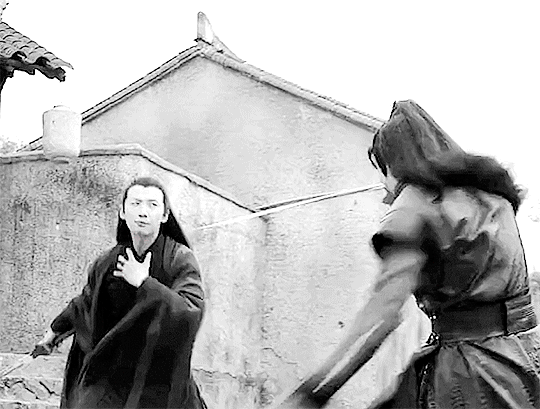
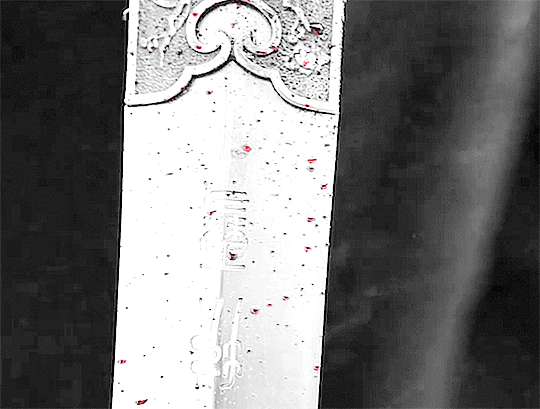
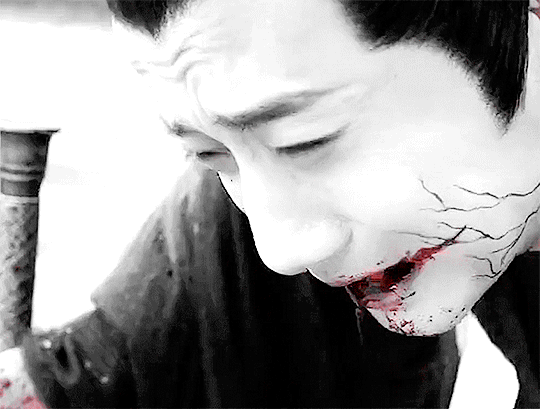



#The Untamed#陈情令#CDrama#Chinese Drama#chinesemedia#CensoredBL#Bromance#Gabriel makes stuff#Wang Hao Xuan#Xue Yang#Li Bo Wen#Song Lan#Song Zi Chen#Chen Zhuo Xuan#A-Qing#Little Blind
87 notes
·
View notes
Text
[Please only give reasons to vote for a character & be kind and courteous in the notes]
Bo Qingbo from The General's Manor Young Concubine Survival Report
She is so special to me. Upon reincarnating as a newly-married concubine staying at a (female) General’s estate, she just. Assumes she was married to the general (who is their husband’s main wife).
Li Shiyi from Wen Guan
Li Shiyi is tasked with guiding the dead to reincarnation and letting go of their pasts.
Xiang Tiange from The General's Manor Young Concubine Survival Report
Badass general who girl bossed so hard that her husband (Prince Yixing) hired a fake concubine (Bo Qingbo) to get rid of her
#mini polls#polls#random mini polls#bo qingbo#xiang tiange#the general's manor young concubine survival report#li shiyi#wen guan#reading the remnants#baihe#my polls#queue
6 notes
·
View notes
Text
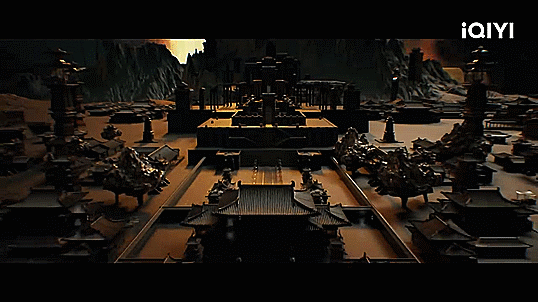
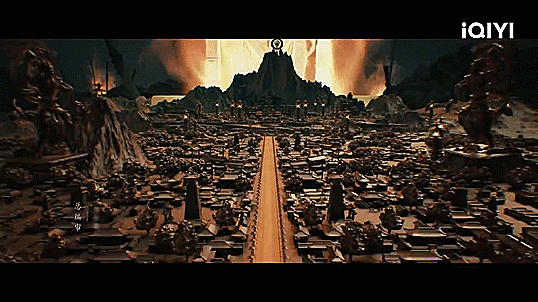
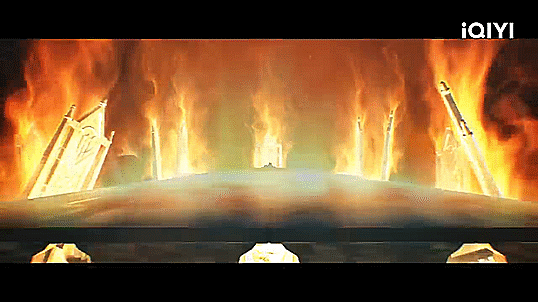


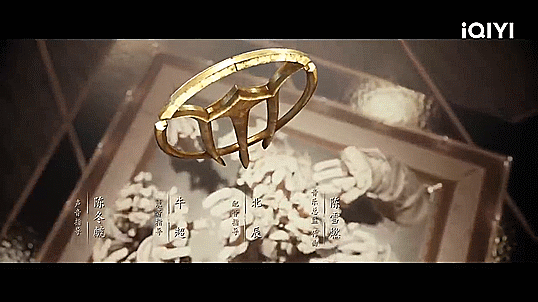



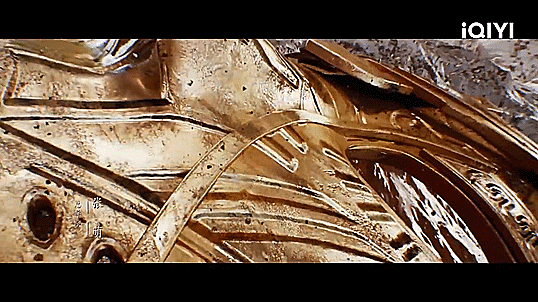
Cdrama: Eternal Brotherhood (2024)
Gifs of Intro of cdrama "Eternal Brotherhood"
【ENG SUB | FULL】 Eternal Brotherhood 1 EP1: Zichuan Xiu was Framed by Yang Minghua | 紫川·光明三杰 | iQIYI
Watch this video on Youtube: https://www.youtube.com/watch?v=rmuudhdHexA
#Eternal Brotherhood#紫川#The King of Light in Zichuan#Zi Chuan Zhi Guang Ming Wang#紫川之光明王#紫川·光明三杰#2024#iQiyi#Tencent Video#youtube#cdrama#chinese drama#episode 1#1st episode#Yang Xu Wen#Liu Yu Ning#Zhang Ming En#Li Mo Zhi#Gu Lan Di#Dong Bo Liang#Guo Jia Nan#Joyin Cai#Li Zhi Yong
5 notes
·
View notes
Text
best cdramas I’ve watched since the last one of these posts in 2023 (and some I’m still looking forward to seeing)
A League of Nobleman (watch on WeTV VIP | watch on AppleTV | watch on Viki | watch on bilibili | watch on YouTube) Adapted from the novel "The Mystery of Zhang Guo" (张公案) by Da Feng Gua Guo (大风刮过) starring Jing BoRan, Song WeiLong, Hong Yao, Guo Cheng and Wang Duo. Definitely gay, but in like a very focused, we-have-a-mystery-to-solve way. Loved the acting and the plot; cannot believe people actually gave Song Weilong shit for his acting in this drama. He was aMAzing. The downside is that the editing grew progressively sloppier as the drama progressed, and although majority of the visuals were very satisfying, I never realized how crappy the quality of the light was until I tried gifing some of the scenes. The upside is Jing BoRan holding kittens. Enough Said. 7/10
The Blood of Youth (watch on Viki | watch on YouTube) Adapted from the novel "Shao Nian Ge Xing" (少年歌行) by Zhou Mu Nan (周木楠) starring Li HongYi, Liu XueYi and Ao RuiPeng. Love this goddamn drama. I adopted the entire cast within the first 3 episodes and then I spent the next 37 terrified that half of them would get killed off. There’s def some major character death in this drama my chickens, so keep that in mind (and not a canonical death either, from what I understand). Anyway, this is my fave genre by far so I’m never really picky, but this drama is exhilarating and gorgeous from beginning to end. Highly recommend. 9/10
New Life Begins (watch on iQIYI | watch on Viki | watch on YouTube) Adapted from the web novel "Qing Chuan Ri Chang" (清穿日常) by Duo Mu Mu Duo (多木木多) starring Bai JingTing and Tian XiWei. Just sweet and fluffy. The plot is easy and devoid of complexities, but very satisfying nonetheless. The acting is definitely on another level. The entire cast has bonkers chemistry, and it’s about time someone made good use of Bai Jingting’s comedy potential. One of the top 5 easy viewing dramas on my rewatch list. 8/10
The Legendary Life of Queen Lau (watch on Viki | watch on YouTube) Adapted from the web novel "Huang Hou Liu Hei Pang" (皇后刘黑胖) by Ge Yang (戈鞅) starring Li JiaQi and Li HongYi. Loved this. Although it doesn’t shy away from difficult subjects, this is basically a comedy from beginning to end. Not gonna lie, I mainly gave this a go for Li Hongyi, but it’s hard to even notice him when Li Jiaqi is in the room. There’s no shame in being overshadowed by superior talent :) 7/10
(yeah, after all this, I rewatched Nirvana In Fire again)
Under the Microscope (watch on Apple TV | watch on Bilibili | watch on iQIYI VIP | watch on Viki) Adapted from the novel "Xian Wei Jing Xia De Da Ming" (显微镜下的大明) by Ma Bo Yong (马伯庸) starring Zhang RuoYun and Wang Yang. Continuously impressed by Zhang RuoYun’s skills. This drama is 90% grit and tension. Drool-worthy visuals. Interesting plot. Sound mixing that gives me a Mo Ran style boner. Make your friends watch it and they will hate you. 9/10
Till The End of The Moon (watch on YouTube | watch on Apple TV | watch on Viki) Adapted from the web novel "Hei Yue Guang Na Wen BE Ju Ben" (黑月光拿稳BE剧本) by Teng Luo Wei Zhi (藤萝为枝). Starring Luo Yunxi and Bai Lu. This was so breathtakingly gorgeous. The chemistry between the actors, the visuals, the special effects, the costumes, everything is stunning in this drama. The romance is by no means original, but still manages to draw you in. Absolutely worth watching at least once. 8/10
Still waiting on:
Immortality - based on danmei novel The Husky and His White Cat Shizun by 肉包不吃肉 starring Chen Feiyu and Luo Yunxi (you can think I’m a clown but you’d be wrong bc I’m a wholeass circus)
Winner Is King - based on the danmei novel Sha Po Lang by Priest starring Tan Jianci and Chen Zheyuan
Step By Step Lotus - based on historical novel Return to Ming Dynasty as Prince by 月关 starring Zhang Binbin and Luo Yunxi
Eternal Faith - based on danmei novel Heaven Official’s Blessing by Mo Xiang Tong Xiu starring Zhai Xiaowen and Zhang Linghe
Joy Of Life Season 2 - based on wuxia novel of the same name by 猫腻 starring Zhang Ruoyun and Li Qin
Story of Kunning Palace - based on the novel 坤宁 by 时镜 starring Bai Lu and Zhang LingHe
Flying Phoenix - based on danmei novel of the same name by 風弄 starring Dai Jingyao and Shu Yaxin
The Story of the Bat - based on danmei novel Bat by Feng Nong starring Mao Zijun and Zhang Yao
The Longest Promise - based on xianxia novel Zhu Yan by 沧月 starring Xiao Zhan, Ren Min, and Zhang Yunlong
Mysterious Lotus Casebook - based on wuxia novel 吉祥纹莲花楼 by Teng Ping 藤萍 starring Cheng Yi and Zeng ShunXi
Follow Your Heart - historical drama starring Song Yi and Luo Yunxi
The Thirteen-Hongs in Canton - historical drama starring Zhu Yawen and Yu Haoming
White Cat Legend - based on manhua of the same name starring Ding Yuxi and Zhou Qi
214 notes
·
View notes
Text
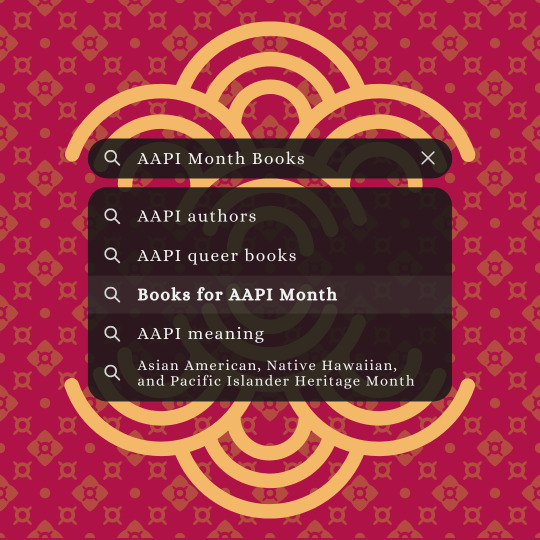




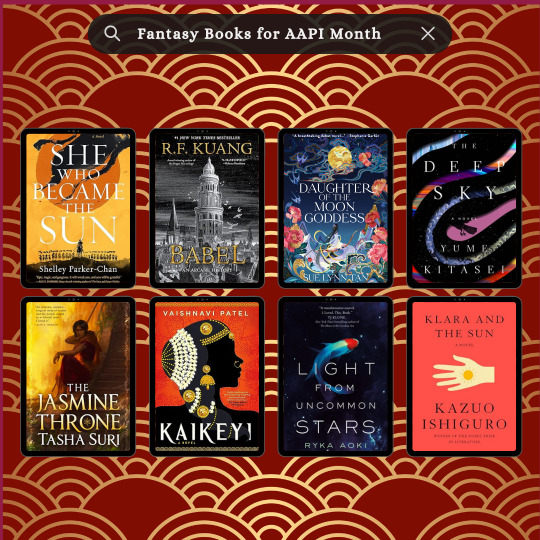


🌸 Books for AAPI Month
❤️ Celebrate Asian American and Pacific Islander Heritage Month with this list featuring some of the FEW empowering, vibrant stories written by AAPI authors or starring AAPI protagonists.
🌸 What books did you read for AAPI month?
✨ 2024 Releases
❤️ Night for Day - Roselle Lim
🌸 The Djinn Waits a Hundred Years - Shubnum Khan
🏮The Great Reclamation - Rachel Heng
❤️ Lies and Weddings - Kevin Kwan
🌸 Valley Verified - Kyla Zhao
🏮 The Catch - Amy Lea
❤️ Your Utopia - Bora Chung
🌸 Tehrangeles - Porochista Khakpour
🏮 Horse Barbie - Geena Rocero
❤️ Memory Piece - Lisa Ko
🌸 The Fetishist - Katherine Min
🏮 Real Americans - Rachel Khong
❤️ The Kamogawa Food Detectives - Hisashi Kashiwai
🌸 Manila Takes Manhattan - Carla de Guzman
🏮 The Last Phi Hunter - Salinee Goldenberg and Ilya Nazarov
❤️ May the Best Player Win - Kyla Zhao
🌸 Are You Nobody Too? - Tina Cane
🏮 The Design of Us - Sajni Patel
❤️ Welcome to the Hyunam-Dong Bookshop - Hwang Bo-Reum
🌸 Heir - Sabaa Tahir
🏮 Maya's Laws of Love - Alina Khawaj
❤️ Midnights with You - Clare Osongco
🌸 Vilest Things - Chloe Gong
🏮 This Place is Magic - Irene Te
❤️ Guilt and Ginataan - Mia P. Manansal
🌸 Icon and Inferno - Marie Lu
🏮 Calling of Light - Lori M. Lee
❤️ Bite Me, Royce Taslim - Lauren Ho
🌸 Rules for Rule Breaking - Talia Tucker
🏮 What's Eating Jackie Oh? - Patricia Park
❤️ How to End a Love Story - Yulin Kuang
🌸 Dark Star Burning, Ash Falls White - Amélie Wen Zhao
🏮 This Is How You Fall in Love - Anika Hussain
❤️ Just Playing House - Farah Heron
🌸 The Boyfriend Wish - Swati Teerdhala
🏮 A Tempest of Tea - Hafsah Faizal
✨ Romance
❤️ Dating Dr. Dil - Nisha Sharma
🌸 King of Wrath - Ana Huang
🏮 The Kiss Quotient - Helen Hoang
❤️ Girl Gone Viral - Alisha Rai
🌸 Pride, Prejudice, and Other Flavors - Sonali Dev
🏮 Role Playing - Cathy Yardley
❤️ The Hurricane Wars - Thea Guanzon
🌸 Ayesha at Last - Uzma Jalaluddin
✨ Fantasy
❤️ She Who Became the Sun - Shelley Parker-Chan
🌸 Babel - R.F. Kuang
🏮 Daughter of the Moon Goddess - Sue Lynn Tan
❤️ The Deep Sky - Yume Kitasei
🌸 The Jasmine Throne - Tasha Suri
🏮 Kaikeyi - Vaishnavi Patel
❤️ Light from Uncommon Stars - Ryka Aoki
🌸 Klara and the Sun - Kazuo Ishiguro
✨ Mystery
❤️ Arsenic and Adobo - Mia P. Manansala
🌸 Vera Wong's Unsolicited Advice for Murderers - Jesse Q. Sutanto
🏮 The Cartographers - Peng Shepherd
❤️ Miracle Creek - Angie Kim
🌸 A Disappearance in Fiji - Nilima Rao
🏮 The Leftover Woman - Jean Kwok
❤️ The Widows of Malabar Hill - Sujata Massey
🌸 Things We Do in the Dark - Jennifer Hillier
✨ Young Adult
❤️ The Wrath and the Dawn - Renée Ahdieh
🌸 All My Rage - Sabaa Tahir
🏮 Forget Me Not - Alyson Derrick
❤️ Hani and Ishu’s Guide to Fake Dating - Adiba Jaigirdar
🌸 These Violent Delights - Chloe Gong
🏮 This Book Won't Burn - Samira Ahmed
❤️ American Betiya - Anuradha D. Rajurkar
🌸 Dragonfruit - Makiia Lucier
18 notes
·
View notes
Note
a o e i i er ai ei ao ou an en ang eng ong i ia iao ie iu ian in iang ing iong u ua uo uai ui uan un uang ueng ü üe üan ün a o e er ai ao ou an en ang eng yi ya yao ye you yan yin yang ying yong wu wa wo wai wei wan wen wang weng yu yue yuan yun b ba bo bai bei bao ban ben bang beng bi biao bie bian bin bing bu p pa po pai pei pao pou pan pen pang peng pi piao pie pian pin ping pu m ma mo me mai mei mao mou man men mang meng mi miao mie miu mian min ming mu f fa fo fei fou fan fen fang feng fu d da de dai dei dao dou dan den dang deng dong di diao die diu dian ding du duo dui duan dun t ta te tai tei tao tou tan tang teng tong ti tiao tie tian ting tu tuo tui tuan tun n na ne nai nei nao nou nan nen nang neng nong ni niao nie niu nian nin niang ning nu nuo nuan nü nüe l la le lai lei lao lou lan lang leng long li lia liao lie liu lian lin liang ling lu luo luan lun lü lüe g ga ge gai gei gao gou gan gen gang geng gong gu gua guo guai gui guan gun guang k ka ke kai kei kao kou kan ken kang keng kong ku kua kuo kuai kui kuan kun kuang h ha he hai hei hao hou han hen hang heng hong hu hua huo huai hui huan hun huang z za ze zi zai zei zao zou zan zen zang zeng zong zu zuo zui zuan zun c ca ce ci cai cao cou can cen cang ceng cong cu cuo cui cuan cun s sa se si sai sao sou san sen sang seng song su suo sui suan sun zh zha zhe zhi zhai zhei zhao zhou zhan zhen zhang zheng zhong zhu zhua zhuo zhuai zhui zhuan zhun zhuang ch cha che chi chai chao chou chan chen chang cheng chong chu chua chuo chuai chui chuan chun chuang sh sha she shi shai shei shao shou shan shen shang sheng shu shua shuo shuai shui shuan shun shuang r re ri rao rou ran ren rang reng rong ru rua ruo rui ruan run j ji jia jiao jie jiu jian jin jiang jing jiong ju jue juan jun q qi qia qiao qie qiu qian qin qiang qing qiong qu que quan qun x xi xia xiao xie xiu xian xin xiang xing xiong xu xue xuan xun
NAKU 🫵
46 notes
·
View notes
Text
abl aci acr age aid aki ala all als alt ami ana ann ant ape arc are arm ato aun aur aut avi awa axi bab bac bai bak bal ban bar bas bat bea bec bee bel ben bes bet bia bik bil bin bir bit ble blo blu boa bod boi bol bom bon boo bor bos bot bou bow bra bre bro buc bul bum bur bus but buz caf cag cak cal cam can cap car cas cav cel cen cha che chi cho cit cla cli clu coa coc cod coi cok col com con coo cop cor cos cou cov cra cre cro cub cul cur cut dal dam dar das dat daw day dea deb dec dee del dem den des dia dic die dir dis div doc doe dol dom don doo dos dov dow dra dre dro dru dua duc duf duk dul dum dus dut eac ear eas eat ech edg edi els env epi eur eve evi exa exi exp eye fac fad fai fak fal fam far fas fat fea fee fel fil fin fir fis fiv fla fle fli flo flu foa foi fol fon foo for fou fre fro fuc fue ful fun fur fus gai gal gam gan gat gav gaz gea gen gif gil gir giv gla gle glo glu goa goe gol gon goo gor gow gra gre gri gro gul gur hai hal han har hat hau hav haw hea hee hei hel her hid hig hik hil hin hir hol hom hoo hop hor hos hou hug hul hun hur hyp ico ide idl ido inc inf int iri iro isl ite jac jai jak jan jav jaz jea jee jil joe joh joi jok jos jum jun jur jus kee kem ken kep kha kic kil kin kir kis kit kne kni kno koh kyl lac lad lai lak lam lan las lat lav law laz lea lef len les lev lie lif lik lil lim lin lio lis liv loa loc lof log lon loo lor los lou lov luc lum lun lur lus mad mai mak mal mam man mar mas mat may maz mea mee meg mel mem men mer mes mic mik mil min mis moc mod mol mon moo mor mos mov muc mus myt nai nam nav nea nec nee nes new nex nic nin nod non noo nor nos not nov nud nut oat obe odd odo oka onc onl ont ope ora ott our ova ove pac pag pai pal pap par pas pat pea pec pee pes pic pie pik pil pin pip pit pla ple plo plu poe pol pon poo pop por pos pou pra pre pro pul pum pun pur pus qui rac rag rai ram ran rap rar ras rat rav rea ree rel ren res ric rid rin rio rip ris rit roa roc rod rol roo rop ros rub rud rui rul rus rut sac saf sag sai sak sal sam san sav sca sco sea see sel sem sen sep sex sha she shi sho shu sic sid sig sil sin sit siz ski sla sli slo sna sno soa sod sof soi sol som son soo sor sou spa spi spo spu sta ste sti sto suc sui sun sur swa swi tac tai tak tal tan tap tas tax tea tec tee tel ten ter tes tex tha the thi tho thu tic tid tie til tim tin tir tob tol tom ton too top tor tos tou tow tra tre tri tro tru tub tuc tun tur twi typ ugl uni upo urg use vai var vas vei ver ves vet vic vie vin vis voi vot wad wag wai wak wal wan war was wat wav way wea wee wel wen wer wes wha whe whi who wid wif wil win wip wir wis wit wok wol woo wor wra yan yar yea you yua zer zin zon zoo
4 notes
·
View notes
Note
Ji ji fu ji ji
a o e i i er ai ei ao ou an en ang eng ong i ia iao ie iu ian in iang ing iong u ua uo uai ui uan un uang ueng ü üe üan ün a o e er ai ao ou an en ang eng yi ya yao ye you yan yin yang ying yong wu wa wo wai wei wan wen wang weng yu yue yuan yun b ba bo bai bei bao ban ben bang beng bi biao bie bian bin bing bu p pa po pai pei pao pou pan pen pang peng pi piao pie pian pin ping pu m ma mo me mai mei mao mou man men mang meng mi miao mie miu mian min ming mu f fa fo fei fou fan fen fang feng fu d da de dai dei dao dou dan den dang deng dong di diao die diu dian ding du duo dui duan dun t ta te tai tei tao tou tan tang teng tong ti tiao tie tian ting tu tuo tui tuan tun n na ne nai nei nao nou nan nen nang neng nong ni niao nie niu nian nin niang ning nu nuo nuan nü nüe l la le lai lei lao lou lan lang leng long li lia liao lie liu lian lin liang ling lu luo luan lun lü lüe g ga ge gai gei gao gou gan gen gang geng gong gu gua guo guai gui guan gun guang k ka ke kai kei kao kou kan ken kang keng kong ku kua kuo kuai kui kuan kun kuang h ha he hai hei hao hou han hen hang heng hong hu hua huo huai hui huan hun huang z za ze zi zai zei zao zou zan zen zang zeng zong zu zuo zui zuan zun c ca ce ci cai cao cou can cen cang ceng cong cu cuo cui cuan cun s sa se si sai sao sou san sen sang seng song su suo sui suan sun zh zha zhe zhi zhai zhei zhao zhou zhan zhen zhang zheng zhong zhu zhua zhuo zhuai zhui zhuan zhun zhuang ch cha che chi chai chao chou chan chen chang cheng chong chu chua chuo chuai chui chuan chun chuang sh sha she shi shai shei shao shou shan shen shang sheng shu shua shuo shuai shui shuan shun shuang r re ri rao rou ran ren rang reng rong ru rua ruo rui ruan run j ji jia jiao jie jiu jian jin jiang jing jiong ju jue juan jun q qi qia qiao qie qiu qian qin qiang qing qiong qu que quan qun x xi xia xiao xie xiu xian xin xiang xing xiong xu xue xuan xun
14 notes
·
View notes
Text
Commanderies and States of Western Han, Part 1
This is really only for the really specially interested, but having done the work I thought I might as well put it out here.
From the geographic treatise in Ban Gu's Hanshu with the commentary by Yan Shigu.
The reader will note that unlike later similar works, the commanderies are not grouped by province.
Jingzhaoyin
Governor of Jingzhao京兆尹, formerly Qin's Neishi內史. 1st Year of Emperor Gao [206 BC], it belonged to Sai state塞國. 2nd Year [205 BC], it changed to become Weinan commandery渭南郡. 9th Year [198 BC], it was restored to Neishi內史. Emperor Wu's 6th Year of Jianyuan [135 BC], divided it off to be Youneishi右內史, 1st Year of Taichu [104 BC], it changed to become Governor of Jingzhao京兆尹. 2nd Year of Yuanshi [2 AD], 195 702 households, 682 468 people[a]. 12 counties:
[1]Chang'an長安, 5th Year of Emperor Gao [202 BC], set it up. 1st Year of Emperor Hui [194 BC], began the city walls, 6th Year [189 BC], it was completed. 80 300 households, 246 200 people. Wang Mang called it Chang'an常安[b].
[2]Xinfeng新豐. Li Mountain驪山 is to the south. Formerly the Li Rong's state驪戎國. Qin called it Liyi驪邑. 7th Year of Gaozu [200 BC], set it up[c].
[3]Chuansikong船司空, Mang called it Chuanli船利[d].
[4]Lantian藍田. The mountains produce pretty jade. Has the Tiger Marquis's Mountain Shrine虎候山祠. Duke Xiao of Qin [361 – 340 BC] set it up.
[5]Huayin華陰, formerly Yinjin陰晉. 5th Year of King Huiwen of Qin [333 BC], changed the name to Ningqin寧秦. 8th Year of Emperor Gao [199 BC], changed the name to Huayin華陰. Taihua Mountain is to the south, it has a shrine, the mountain of Yu province豫州. Jiling palace集靈宮, Emperor Wu erected it. Mang called it Huatan華壇.
[6]Zheng鄭, the district of King Xuan of Zhou's younger brother, Duke Huan of Zheng. Has an iron official[e].
[7]Hu湖, has Zhou's Sons of Heaven' shrines at two places. Formerly called Hu胡, in Emperor Wu's 1st Year of Jianyuan [140 BC], changed the name to Hu湖.
[8]Xiagui下邽[f].
[9]Nanling南陵. 7th Year of Emperor Wen [173 BC], set it up. Yi River沂水 sets out from Lantian valley藍田谷, to the north arrives at Baling霸陵 to enter the Ba River霸水. The Ba river霸水 likewise sets out from Lantian Valley藍田谷, going north it enters the Wei渭. The ancients called it Zi River茲水. Duke Mu of Qin [659 – 621 BC] changed the name to hence set forth the Merits of Ba, to look after sons and grandson[g].
[10]Fengming奉明, Emperor Xuan [79 – 49 BC] set it up.
[11]Baling霸陵, formerly Zhiyang芷陽. Emperor Wen [180 – 157 BC] changed the name. Mang named it Shuizhang水章.
[12]Duling杜陵, formerly the Earl of Du's state杜伯國, Emperor Xuan [79 – 49 BC] changed the name. Has Zhou's General of the Right, Du Zhu's Shrine周右將軍杜主祠 at at four places. Mang called it Rao'an饒安.
[a]Shigu says: Han's households and population must in the time of Yuanshi have been the most abundant and flourishing. For that reason the treatise lift them up and use them as the number. The ones after are all classified like this.
[b]Shigu says: Wang Mang usurped the throne, and changed the names of Han's commanderies and counties, generally altering them. The ones below are all classified like this.
[c]Ying Shao says: the Grand High August thought of returning home east. And so Gaozu built a city with courtyards, streets and wards in the image of Feng豐, and moved the people of Feng to fill it. For that reason it was titled Xinfeng新豐 [“New Feng”].
[d]Fu Qian says: “The name of a count”. Shigu says: “Originally the officials which was master of ships船, and thereupon used it as county.”
[e]Ying Shao says: “The fief of King Xuan's younger brother of the [same] mother You. His son and King Ping moved east, which was further called Xinzheng [“New Zheng”].”
Your Subject Zan says: “Zhou, since King Mu and downwards had the capital at Xizheng新鄭 [“Western Zheng”], and did not get to use it as fief of Duke Huan. In the beginning Duke Huan was Zhou's Minister over the Masses. The kingly house was about to be chaotic, and for that reason he planned with Scribe Bo to convey the treasure to give bribes for between Guo虢 and Hui會. When King You was defeated, after two years he then wiped out Kuai會, after four years he then wiped out Guo虢, and settled at the hill of Zhengfu鄭父. Hence he became Duke Huan of Zheng, there are no writings of a fief in Jingzhao京兆.”
Shigu says: “The Outer Transmittals of Spring and Autum states: “When King You was defeated, Duke Huan of Zheng died there. His son Duke Wu and King Ping turned back east”. For that reason Mister Zuo's Transmittals states: “When our Zhou moved east, it was Jin and Zheng they relied on.” Also when Duke Zhuang of Zheng states: “Our previous lord's new town was here”, it is perhaps the road to Xinzheng新鄭. King Mu below were without affairs of a capital at Xizheng西鄭. Zan's explanations was wrong. Kuai會 is pronounced gong工+wai外.”
[Baxter & Sagart state: Present hui會 was then pronounced (h- + -waj C), present kuai會was then pronounced(k- + -waj C). 工 was then pronounced (k- + -uwng A). 外 was then pronounced (ng- + -waj C). Your Humble Tumbler says: Therefore here 會 should be read as (k- + -waj C) which should give kuai.]
[f]Ying Shao says: “Duke Wu of Qin invaded the Gui邽 Rong, and set up to have Shanggui上邽[“Upper Gui”]. For that reason they added Xia下 [“Lower”].
Shigu says: “邽 is pronounced gui圭. They took the people of the Gui Rong, and the came to this county.”
[g]Shigu says: “Xi沂 is pronounced xian先+li歷. The Observed Readings says shi示[?].”
[Baxter & Sagart state: 沂 was pronounced (ng- + -j+j A). 先was pronounced (s- + -en C). 歷 was pronounced (l- + -ek D). Your Humble Tumbler says: Therefore here 沂 should be read as (s- + -ek D) which should give xi like in 析]
Zuopingyi
Zuopingyi左馮翊, formerly Qin's Neishi內史. 1st Year of Emperor Gao [206 BC], it belonged to Sai state塞國. 2nd Year [205 BC], changed the name to Heshang commandery河上郡. 9th Year [198 AD], abolished it, restoring it to be Neishi內史. Emperor Wu's 6th Year of Jianyuan [135 BC], divided it off to be Zuoneishi左內史, 1st Year of Taichu [104 BC], changed the name to Zuopingyi左馮翊[a. 235 101 households, 917 822 people. 24 counties:
[1]Gaoling高陵, Seat of the Assisting Chief Commandant of the Left. Mang called it Qianchun千春.
[2]Yueyang櫟陽, Duke Xian of Qin [384 – 362 BC] moved there from Yong雍. Ma called it Shiting師亭[a].
[3]Didao翟道, Mang called it Huan渙.
[4]Chiyang池陽, 4th Year of Emperor Hui [191 BC], set it up. Jienie Mountain巀嶭山 is to the north[b].
[5]Xiayang夏陽, formerly Shaoliang少梁. 11th Year of King Huiwen of Qin [327 BC] changed the name. The Tribute of Yu's Liang Mountain梁山 is to the north-west. Longmen Mountain龍門山 is to the north. Has an iron official. Mang named it Jiting冀亭.
[6]Ya衙, Mang named it Dachang達昌[c].
[7]Suyi粟邑, Mang named it Sucheng粟城.
[8]Gukou谷口, Jiuzong Mountain九嵕山 is to the west. Has the Duke of Heavenly Unity天齊公, Wuchuang Mountain五床山, the Transcendents僊 and the Five Emperors Shrines五帝祠 at four places. Mang called it Guhui谷喙[d].
[9]Lianzhuo蓮勺[e].
[10]Fu鄜, Mang called it Xiuling脩令[f].
[11]Pinyang頻陽, Duke Li of Qin[476 – 443 BC] set it up[g]. [In 456 BC according to the Shiji].
[12]Linjin臨晉, formerly Dali大荔. Qin seized it [in 461 BC according to the Shiji] and changed the name. Has the He River's Shrine河水祠, Ruixiang芮鄉, formerly the Rui state芮國. Mang called it Jianjin監晉[h].
[13]Zhongquan重泉, Mang called it Diaoquan調泉.
[14]Heyang郃陽[i].
[15]Duixu祋祤, 2nd Year of Emperor Jing [155 BC], set it up[j].
[16]Wucheng武城, Mang called it Huancheng桓城[k].
[17]Chenyang沈陽, Mang challed it Zhichang制昌.
[18]Huaide褱德, in the Tribute of Yu the northern branch Jing Mountain荊山 is to the south. Below has the Qiangliang Plain彊梁原. Luo River洛水 to the south-east enters the Wei渭, the irrigation of Yong province雍州. Mang called it Dehuan德驩[l].
[19]Cheng徵, Mang called it Fan'ai氾愛[m].
[20]Yunling雲陵, Emperor Zhao [87 – 74 BC] set it up.
[21]Wannian萬年, Emperor Gao [206 – 195 BC] set it up. Mang called it Yichi異赤[n].
[22]Changling長陵, Emperor Gao [206 – 195 BC] set it up. 50 057 households, 179 469 people. Mang called it Changping長平.
[23]Yangling陽陵, formerly Yiyang弋陽. Emperor Jing [157 – 141 BC] changed the name. Mang called it Weiyang渭陽.
[24]Yunyang雲陽. Has Xiutu休屠, the Golden Person金人 and the God of Straight Paths' Shrines徑路神祠. The Yue Shaman Gu Rang's Shrine越巫(夘+古?)𨟚祠 at three places[o].
[a]Ru Chun says: “ 櫟 is pronounced yüe藥.
[b]Ying Shao says: “It is on the sunny side of Chi River池水.”
Shigu says: “Jienie 巀嶭, precisely where present customs places [?] Cuo'e Mountain嵯峨山, pronounced Jienie巀齧. It is pronounced cai 才+ge葛, and also pronounced wu五+ge葛.
[齧 Baxter & Sagart: (ng- + -et D). 才 Baxter & Sagart: (dz- + -oj A). 葛 Baxter & Sagart: (k- + -at D). 五 Baxter & Sagart: (ng- + -u B). Baxter & Sagart have nothing under (dz- + -at D) or (ng- + -at D). But (dz- + -et D) gives jié and (ng- + -et D) gives nie as in 齧.
[c]Ru Chun says: “衙 is pronounced ya牙.”
Shigu says: “Just the place of which the Spring and Autumn states 'Qin and Jin fought at Pengya彭衙'.”
[d]Shigu says: “嵕 is pronounced zi子 + gōng 公. And also pronounced zi子 + kǒng 孔. 喙 is pronounced xu許 + hui穢.
[e]Ru Chun says: “Pronounced nianzhuo輦酌.”
[Baxter & Sagart: 蓮: (l- + -en A) 輦: (l- + -jen B). zhuo勺: (tsy- + -jak D). 酌: (tsy- + -jak D)
[f]Meng Kang says: “Pronounced fu敷.”
[g]Ying Shao says: “It is on the sunny-side of Pin River頻水.”
[h]Ying Shao says: “Overlooks [lin臨] the Jin River晉水, for that reason it was called Linjin臨晉.
Your Subject Zan says: “Jin River晉水 is in the midst of the He河. This county is to the west of the He西. Do not get to state that it overlooks the Jin River晉水. The old explanation says, Qin built a tall rampart so as to overlook Jin state晉國, for that reason it was Linjin臨晉.”
Shigu says: “Zan's explanation is correct. Those who explain sometimes consider it to be when Marquis Wen of Wei invaded Qin, he first set up Linjin, which is wrong. Marquis Wen heavily walled it and that was all, how was he first to set it up!”
[i]Ying Shao says: “It is on the sunny-side of He River郃水.”
Shigu says: “Pronounced he合. Just where the Great Odes' poem of Great Clarity speaks of as 'On the sunny-side of the Qia洽.'”
[j]Shigu says: “dui祋 is pronounced ding丁 + huo活, and also pronounced ding丁 + wai外. 祤is pronounced xu音詡.”
[k]Shigu says: “Just of where Mister Zuo's Transmittals states 'Qin invaded Jin, and was defeated at Wucheng武城'.”
[l]Shigu says: “ 褱 is like the huai懷 character.”
[m]Shigu says: “ 徵 is pronounced cheng懲, precisely the Chengcheng澄城 county of the present. When the Zuo Transmittals state 'defeated at northern Cheng 徵', it speaks of this land, that is all. Yet Du Yuankai is not detailed with its location.”
[n]Shigu says: “The Yellow Map of the Three Supports states that the Grand High August was buried on the plain north of Yueyang櫟陽, and they erected the Wannian Mound萬年陵 there.”
[o]Meng Kang says: “(夘+古?) is pronounced as the gu辜 in guzhe辜磔 [“punishment by dismembering”], the shrine of a person of the Yue越. 𨟚 is pronounced rang穰. 休is pronounced xu許 + qiu虯. 屠 is pronounced chu除.
Youfufeng
Youfufeng右扶風, formerly Qin's Neishi內史. 1st Year of Emperor Gao [206 BC], it belonged to Yong state雍國. 2nd Year [205 BC] changed it to be Zhongdi commandery中地郡. In the 9th Year [198 AD], abolished it, restoring it to be Neishi內史. Emperor Wu's 6th Year of Jianyuan [135 BC], divided it off to be Youneishi右內史, 1st Year of Taichu [104 BC] changed the name of the Master of the Feudal Ranks Chief Commandant主爵都尉 to be Youfufeng右扶風[a]. 216 377 households, 836 070 people. 21 counties:
[1]Weicheng渭城, formerly Xianyang咸陽. 1st Year of Emperor Gao [206 BC], changed the name to Xincheng新城. 7th Year [200 BC], abolished it, belonging to Chang'an長安. Emperor Wu's 3rd Year of Yuanding [114 BC], changed the name to Weicheng渭城. Has the Lanchi Palace蘭池宮. Wang called it Jingcheng京城.
[2]Huaili槐里, Zhou called it Quanqiu犬丘. King Yi [899 – 892 BC] made it the capital. Qin changed the name to Feiqiu廢丘. 3rd Year of Gaozu [204 BC], changed the name. Has Huangshan Palace黃山宮, 2nd Year of Xiaohui [193 BC], erected it. Mang called it Huaizhi槐治.
[3]Hu鄠, anciently a state. Has Hugu Precinct扈谷亭. Hu扈 is who Qi of Xia invaded. Feng River酆水 sets out to the south-east. Also has Jue river潏水. Both to the north pass through Shanglin Park上林苑 to enter the Wei渭. Has Beiyang Palace萯陽宮, erected by King Wen of Qin[b].
[4]Zhouzhi盩厔. Has Changyang Palace長楊宮. Has the Shexiong Building射熊館, King Zhao of Qin [306 – 251 BC] erected it, Lingzhi Canal靈軹渠, pierced by Emperor Wu [114 – 87 BC].
[5]Tai斄,where was the fief of Houji of Zhou[c].
[6]Yuyi郁夷, The Poetry: “The way from Zhou is Yuyi周道郁夷.” Has the Qian River's Shrine汧水祠. Mang called it Yuping郁平[d].
[7]Meiyang美陽, in the Tribute of Yu Qi Mountain is to the north-east. Zhongshui District中水鄉 where was the town of King Da of Zhou. Has Gaoquan palace高泉宮, Dowager Xuan of Qin erected it.
[8]Mei郿, Chengguo Canal成國渠 at the head accepts the Wei. North-eastward it arrives at Shanglin上林 to enter Menglong Canal蒙籠渠. Seat of the Assisting Chief Commandant of the Right[e].
[9]Yong雍, Duke Hui of Qin made it the capital. Has the Five Places for Worshipp五畤, Taihao太昊, the Yellow Emperor and below, shrines at 303 places. The Tuoquan Palace橐泉宮, Duke Xiao [361 – 338 BC] erected it, the Qinian Palace祈年宮, Duke Hui erected it, the Yuyang Palace棫陽宮, King Zhao [306 – 251 BC] erected it. Has an iron official[f].
[10]Qi漆, the river is west of the county. Has an iron official. Mang called it Qizhi漆治.
[11]Xunyi栒邑, has Bin District豳鄉, the Poetry's Bin state豳國, where was Noble Liu's capital[g].
[12]Yumi隃麋, has the Yellow Emperor's Sons Shrine黃帝子祠. Mang called it Futing扶亭[h].
[13]Chencang陳倉, has the High Duke上公, the Morning Star明星, the Yellow Emperor's Grandson[s], and Shun's wife Yu's Burial mound's Shrines舜妻育冢祠. Has Yuyang Palace羽陽宮, King Wu of Qin [310 – 307 BC] erected it.
[14]Duyang杜陽, Du River杜水 to the south enters the Wei渭. The Poetry says: “From Du杜.” Mang called it Tongdu通杜[i].
[15]Qian汧, Wu Mountain吳山 is to the west. Ancient writings considered it to be Qian Mountain汧山. The mountain of Yong province雍州. To the north has Pugu District蒲谷鄉 and Xianzhong Valley弦中谷, Yong province's Xianpu Marsh弦蒲藪. Qian River汧水 sets out to the north-west, and enters the Wei渭. Rui River芮水 sets out to the north-west, to the east entering the Jing涇, the Poetry's Ruiwu芮㑄. The streams of Yong province[j].
[16]Haozhi好畤, Gui Mountain垝山 is to the east. Has Liangshan palace梁山宮, the First August of Qin [246 – 210 BC] erected it. Mang called it Haoyi好邑[k].
[17]Guo虢, has the Yellow Emperor's Sons, and Wen and Wu of Zhou's Shrines. Guo Palace虢宮, Dowager Xuan of Qin erected it.
[18]Anling安陵, Emperor Hui [195 – 188 BC] set it up. Mang called it Jiaping嘉平[l].
[19]Maoling茂陵, Emperor Wu [141- 87 BC] set it up. 61 087 households, 277 277 people. Mang called it Xuancheng宣城[m].
[20]Pingling平陵, Emperor Zhao [87 – 74 BC] set it up. Mang called it Guangli廣利.
[21]Wugong武功, Taiyi Mountain太壹山 ancient writings consider to be Zhongnan終南. Chui Mountain垂山 ancient writings considered to be Dunwu敦物. Both are east of the county. Ye River斜水 sets out from north of Yaling Mountian衙領山, and arrives at Mei郿 to join the Wei渭. Bao River褒水 likewise sets out from Yaling衙領, and arrives at Nanzheng南鄭 to join the Mian沔. Has Chui Mountain垂山, Ye River斜水 and Bao River's Shrines褒水水祠 at three places. Mang called it Xinguang新光[n].
[a]Shigu says: “Master of the Feudal Ranks Chief Commandant, originally Qin's Master of the Feudal Ranks Central Commandant, in charge of the ranked marquises. Arriving at the 1st Year of Taichu [104 BC], altered the name to Supporting Wind of the Right[youfufeng右扶風], and seated him in the right [i.e. western] territory of Neishi. For that reason this treatise retroactively writes that in the 6th Year of Jianyuan [135 BC] they divided it to be the Neishi of the Right右內史, and also states that they altered the name of the Feudal Ranks Chief Commandant to be Youfufeng右扶風.
[b]Shigu says: “潏 is pronounced jue決. 萯 is pronounced bei倍.”
[c]Shigu says: “read similar to tai邰, and is pronounced tai 胎.”
[d]Shigu says: “The Lesser Ode's poem of Four Steeds says: “The four steeds stride steadily, the way from Zhou is meandering away [weichi倭遲].” In the Han Poetry it is written with the yu郁 and yi夷 characters. It talks of a subject on a mission who drives his horses and travels on this road.”
[e]Shigu says: “ 郿 is pronounced mei媚].
[f]Ying Shao says: “To pile up high on four sides is called yong雍[“Damming up”].”
Shigu says: “棫 is pronounced yu域.”
[g]Ying Shao says: “Mister Zuo's Transmittals says: “ Bi畢, Yuan原, Feng酆 and Xun郇 were the left-side successors of Wen [of Zhou]”. The Marquis of Xun and the Earl of Jia invaded Jin.”
Your Subject Zan says: “The Ancient Writings of Ji Commandery : 'Duke Wu of Jin wiped out Xun荀, and hence bestowed on the Grandee Yuanshi An, this was Xun Shu.' It also states 'Duke Wen walled Xun荀.' As such then Xun must have been within the borders of Jin, and do not get to be in the region of Fufeng扶風. Presently Hedong河東 has Xuncheng荀城, the ancient Xun state.”
Shigu says: “Zan's explanation is correct. This xun栒 is read similar to xun荀, but is itself a separate town, and that is all. It is not the one that invaded Jin.”
[h]Shigu says: “隃 is pronounced yu踰.”
[i]Shigu says: “The Great Odes' poem of Floss silk says “The people's first life, was from the land [tu土] of Qiju漆沮.” The Qi Poetry writes “from Du杜. It speaks of Noble Liu escaping the Di and coming to dwell in the territories of Du杜 and Qiju漆沮.”]
[j]Shigu says: “㑄 is read similar to ju鞠. The Great Odes' poem of Noble Liu says: “The halted travellers then became close, just there in Ruiju芮鞠.” The Han Poetry writes Ruiwu芮㑄. It talks of Noble Liu halting his army's travel, wishing to cause calm and quietness. He therefore went to the space of Ruiwu芮㑄.
[k]Shigu says: “Gui垝 is pronounced qiu丘 + hui毀.”
[Baxter & Sagart: 垝 is not listed. 丘: (kh- + -juw A). 毀: (x- +-jwe B). No (kh- + -jwe B) is listed.]
[l]Shigu says: “Kan Yan considers it to be originally Zhou's Cheng Town程邑.”
[m]Shigu says: “The Yellow Map states it originally was Huaili's槐里 Mao District茂鄉.”
[n]Shigu says: “斜 is pronounced yi弋 + she奢. 衙 is pronounced ya牙.”
[Baxter & Sagart: 斜 is not listed. 弋: (y- + -ik D). 奢: (sy- + -jae A). (y- + -jae A) is same as ye邪.]
Hongnong
Hongnong commandery弘農郡, Emperor Wu's 4th Year of Yuanding [113 AD], set it up. Mang called it Youdui右隊. 118 091 households, 475 954 people. Has an iron official in Mianchi黽池. 11 counties:
[1]Hongnong弘農, formerly Qin's Hangu pass函谷關. Beneath Ya Mountain Pass衙山領 is a valley from where Zhu River爥水 sets out, to the north it enters the He河.
[2]Lushi盧氏, Xiong'er Mountain熊耳山 is to the east. Yi River伊水 sets out, to the north-east joins the Luo雒, passing through 1 commandery, travelling 450 li. Also has Yu River育水, to the south it arrives at Shunyang順陽 to enter the Mian沔. Also has Er River洱水, to the south-east it arrives at Luyang魯陽, and likewise joins the Mian沔. Both pass through 2 commanderies, and travel 600 li. Mang called it Changfu昌富[a].
[3]Shan陝, formerly Guo state虢國. Has Jiao City焦城, formerly Jiao state焦國. To the north of Guo虢 is Dayang大陽. To the east of Guo虢 is Xingyang滎陽. To the west of Guo虢 is Yongzhou雍州. Mang called it Huangmei黃眉.
[4]Yiyang宜陽, at Minchi黽池 has an iron official.
[5]Mianchi黽池, 8th Year of Emperor Gao [199 BC], restored the people of Mianchi's黽池 middle district. Middle 2nd Year of Emperor Jing [148 BC], started the city, migrating ten thousand families to be the county. Gu River穀水 sets out from the Guyang Valley穀陽谷, to the north-east it arrives at Gucheng穀城 to enter the Luo雒. Mang called it Shanting陝亭[b].
[6]Danshui丹水, the river sets out from Shangluo's上雒 Zhongling Mountain冢領山, to the east it arrives at Xi析 to enter the Jun鈞. Miyang district密陽鄉 was formerly Shangmin商密[c].
[7]Xin'an新安, in the Tribute of Yu, the Jian River澗水 is to the east, to the south it enters the Luo雒.
[8]Shang商, the town of Qin's chancellor Wei Yang.
[9]Xi析, the Huang River黃水 sets out from Huang Valley黃谷, the Ju River鞠水 sets out from Xi Valley析谷, both arriving east at Li酈 to enter the Zhuan River湍水. Mang called it Junting君亭[d].
[10]Luhun陸渾, in the Spring and Autumn, moved the Luhun Rong to there. Has a pass[e].
[11]Shangluo上雒. In the Tribute of Yu, Luo River sets out from Zhongling Mountain冢領山, to the north-east it arrives at arriving at Gong鞏 to enter the He河, passing through 2 commanderies, travelling 1 070 li, the streams of Yu province豫州. Also has Jia River甲水 setting out from Qinling Mountain秦領山, to the south-east it arrives at Y鍚, to join the Mian沔, passing through 3 commanderies, travelling 570 li. Xiong'er熊耳 and Huoyu Mountains獲輿山 are to the north-east[f].
[a]Shigu says: “ 洱 is pronounced er耳.”
[b]Shigu says: “ 黽 is pronounced mo莫 + jian踐. And is also pronounced mo莫 + ren忍.”
[Baxter & Sagart: meng黽: (m- + -eang B), mo莫: (m- + -ak D), jian踐: (dz- + -jen B). (m- + -jen B) should give miǎn. ren忍: (ny- + -in B). (m- + -in B) should give mǐn.
[c]Shigu says; “Jun鈞 is likewise the name of a river, pronounced jun均.”
[d]Shigu says: “ 析 is pronounced xian先 + li歷. Ju River鞠水 is precisely what is presently spoken of as the Ju Deep pool菊潭. 酈 is pronounced chi持 + yi益. 湍 is pronounced zhuan專.
[Baxter & Sagart: 析: (s- + -ek D). xian先: (s- + -en A), li歷: (l- + -ek D). 酈: not listed, chi持: (dr- + -i A), yi益: ('- + -jiek D). (dr- + -jiek D) not listed.
[e]Shigu says: “渾 is pronounced hu胡 + kun昆.”
[Baxter & Sagart: hun渾: (h- + -won A) and (h- + -won B), hu胡: (h- + -u A), kun昆: (k- won A).
[f]Shigu says: “ 鍚 is pronounced yang陽.”
Hedong
Hedong commandery河東郡, Qin set it up [around 285 BC?]. Mang called it Zhaoyang兆陽. Has Gen Granary根倉 and Shi Granary溼倉. 236 896 households, 962 912 people. 24 counties:
[1]Anyi安邑, Wuxian Mountain巫咸山 is to the south. Salt pool鹽池 is to the south-west. Wei Jiang moved from Wei魏 to here. Arriving at King Hui, he moved to Daliang. Has iron official, salt official. Mang called it Hedong河東.
[2]Dayang大陽, Wu Mountain吳山 is to the west. On it is Wu City吳城. King Wu of Zhou ennobled the descendants of Taibo here. This was the Duke of Yu虞公, he was wiped out by Jin. Has the Son of Heaven's Temple天子廟. Mang called it Qintian勤田[a].
[3]Yishi猗氏.
[4]Xie解[b].
[5]Pufan蒲反 has Yao Mountain堯山 and Shou Mountain's Shrines首山祠. Leishou Mountain雷首山 is to the south. Formerly called Pu蒲, Qin changed the name. Mang called it Pucheng蒲城[c].
[6]Heibei河北, the Poetry's Wei state魏國. Duke Xian of Jin wiped it out, and used it to ennoble the Grandee Fubi. His great-grandson Jiang moved to Anyi安邑.
[7]Zuoyi左邑, Mang called it Zhaoting兆亭.
[8]Fenyin汾陰, Jia Mountain介山 is to the south.
[9]Wenxi聞喜, formerly Quwo曲沃. Duke Wu of Jin moved from Jinyang晉陽 to there. Emperor Wu in the 6th Year of Yuanding [111 BC] moved through, and changed the name[d].
[10]Huoze濩澤, in the Tribute of Yu Xicheng Mountain析城山 is to south-west[e].
[11]Duanshi端氏.
[12]Linfen臨汾.
[13]Yuan垣, in Tribute of Yu Wangwu Mountain王屋山 is to the north-east. Yan River沇水 sets out from there, to the south-east arriving at Wude武德 it enters the He河. Yi軼 sets out from Xinyang滎陽 in Beidi北地, and also to the east arrives at Langhuai琅槐 to join the sea, passing through 9 commanderies, travelling 1 840 li[f].
[14]Pishi皮氏. Geng district耿鄉 was formerly Geng state耿國. Duke Xian of Jin wiped it out, and used it to appoint the Grandee Zhao Su. Ten generations later Marquis Xian moved to Zhongmou中牟. Has an iron official. Mang called it Yanping延平.
[15]Changxiu長脩.
[16]Pingyang平陽, Han Wuzi's great-great-grandson Zhenzi resided there. Has an iron official. Mang called it Xiangping香平[g].
[17]Xiangling襄陵, has Banshi district and precinct班氏鄉亭. Mang called it Ganchang幹昌[h].
[18]Zhi彘, Huoda Mountain is to the east, the mountain of Ji province冀州. The place where King Li of Zhou fled. Mang called it Huangcheng黃城[i].
[19]Yang楊, Mang called it Younianting有年亭[j].
[20]Beiqu北屈, in the Tribute of Yu Hukou Mountain壺口山 is to the south-east. Mang called it Zhenbei朕北[k].
[21]Puzi蒲子[l].
[22]Jiang絳, Duke Wu of Jin moved from Quwo曲沃 to there. Has an iron official[m].
[23]Huzhe狐讘[n].
[24]Qi騏, a marquisate[o]
[a]Ying Shao says: “Is on the sunny-side of the Great He大河.”
[b]Shigu says: “Pronounced Xie蟹.”
[c]Ying Shao says: “The First August of Qin toured east and saw a long slope [ban阪], for that reason he added fan反.
Meng Kang says: “Originally Pu蒲. Duke Wen of Jin used it to bribe Qin. Later the people of Qin returned Pu. The people of Wei were happy and said “Pu蒲 has turned around [fan反]”. To speak of Qin naming it is a mistake.”
Your Subject Zan says: “The Generational House of Qin says “Used Yuan垣 as Pufan蒲反.” As such then it was originally not Pu蒲.
Shigu says: “Ying's explanation is correct.”
[d]Ying Shao says: “The present Quwo曲沃. Qin changed it to be Zuoyi. Emperor Wu here heard that the Southern Yue were routed, and changed it to be called Wenxi聞喜 [lit. “Heard the joyful”.]
[e]Ying Shao says: “Has Huo Marsh濩澤, is to the north-west.”
Shigu says: “濩 is pronounced wu烏 + guo虢.”]
[Baxter & Sagart: 濩: not listed, wū烏: ('- + -u A), guó 虢: (k- + -waek D).
Which should give ('- + -waek D) which is the pronunciation Baxter & Sagart lists for wò擭. Zdic.net lists huò as the main pronunciation of 擭.
[f]Shigu says: “ 琅 is pronounced lang郎. 槐 is pronounced hui回.
[g]Ying Shao says: “Yao's capital, it is on the sunny-side of the Ping He平河.”
[h]Ying Shao: “Xiang Mound襄陵 is to the north-west.”
Shigu says: “Duke Xiang of Jin's mound, followed it to use to name the county.”
[i]Ying Shao says: “Emperor Shun changed it to be called Yong'an安.”
[j]Ying Shao says: “Yang楊 was a marquisate.”
[k]Ying Shao says: “Has to the south the former Chengbei稱北.”
Your Subject Zan says: “The Ancient Writings of Ji Commandery : “When Zhai Zhang saved Zheng鄭, he stayed at the southern bend南屈.
Shigu says: “屈 is pronounced ju居 + wu勿. Precisely where the Duke of Jin's son Yiwu stayed.”
[Baxter & Sagart: qū屈: (kh- + -jut D), jū居: (k- + -jo A), wù勿: (m- + -jut D). No (k- + -jut D) listed.]
[l]Ying Shao says: “Formerly Pufan's蒲反 old town, Emperor Wu set it up.”
Shigu says: “Where Chong'er resided. Ying's explanation missed it.”
[m]Ying Shao: “Jiang River絳水 sets out to the south-west.”
[n]Shigu says: “讘 is pronounced zhī之 + shè涉.”]
[Baxter & Sagart: 讘 not listed, zhī之: (tsy- + -i A), 涉 not listed. Guangyun: 涉: 時攝切. Baxter & Sagart: shè攝: (sy + -jep D), (tsy- + -jep D): zhé]
[o]Shigu says: “pronounced qi其.”]
13 notes
·
View notes
Text
Wangxian/Yizhan/Zhanyi One&few shorts ff.
by Zhanxiaoyibo
The Untamed (Chén Qíng Lìng) is a fantastic live-action adaptation, and the chemistry between Xiao Zhan (Wei Wuxian) and Wang Yibo (Lan Wangji) is undeniable!
Mo Dao Zu Shi is a beloved series for many reasons - the characters, the world-building, the storylines... and the slow-burn romance between Wei Wuxian and Lan Wangji is a big part of its appeal.
So this is one shorts story for many Wangxian and Yizhan. Hope you will enjoy it.
Words: 9926, Chapters: 3/3, Language: English
Fandoms: 魔道祖师 - 墨香铜臭 | Módào Zǔshī - Mòxiāng Tóngxiù, 陈情令 | The Untamed (TV)
Rating: General Audiences
Warnings: Creator Chose Not To Use Archive Warnings
Categories: M/M
Characters: Lan Zhan | Lan Wangji, Wei Ying | Wei Wuxian, Lan Huan | Lan Xichen, Lan Qiren, Jiang Yanli, Wen Qing (Modao Zushi), Wen Ning | Wen Qionglin, Jiang Cheng | Jiang Wanyin, Lan Yuan | Lan Sizhui, Jin Ling | Jin Rulan, Jin Zixuan, Jiang Family (Modao Zushi), Ji Li (Actor), Li Bowen
Relationships: Lan Zhan | Lan Wangji/Wei Ying | Wei Wuxian, Wang Yi Bo/Xiao Zhan | Sean, Jiang Cheng | Jiang Wanyin/Lan Huan | Lan Xichen, Nie Huaisang/Wen Ning | Wen Qionglin, Jiang Yanli/Jin Zixuan, Jin Ling | Jin Rulan/Lan Yuan | Lan Sizhui, Li Bowen/Song Jiyang/Wang Haoxuan, Liu Haikuan & Wang Zhuocheng, Jin Zixuan/Xuan Lu | Lulu
via https://ift.tt/fM3KEAo
0 notes
Text
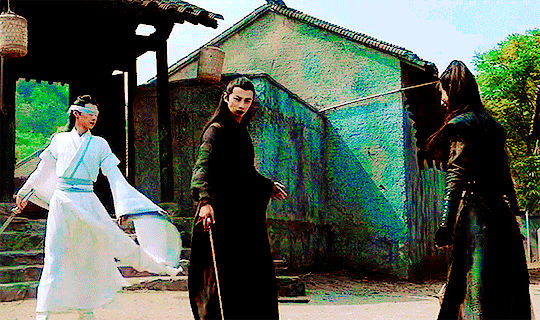



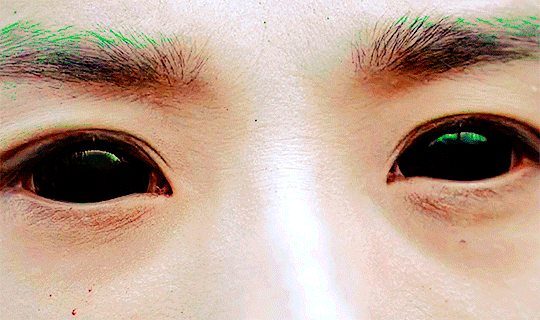

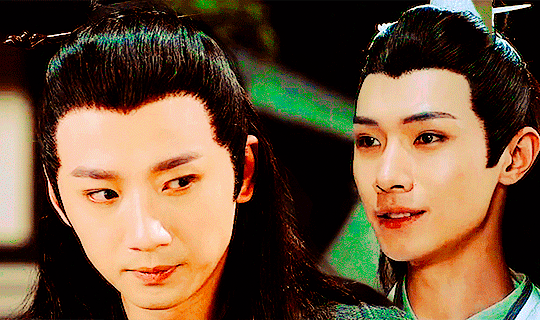
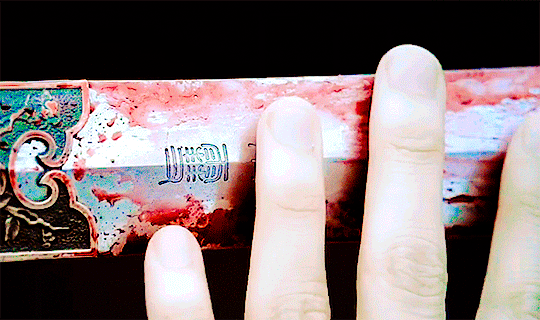

#The Untamed#陈情令#CDrama#Chinese Drama#chinesemedia#CensoredBL#Bromance#Gabriel makes stuff#Li Bo Wen#Song Lan#Song Zi Chen#Wang Hao Xuan#Xue Yang#Song Ji Yang#Xiao Xing Chen#Xiao XingChen#Xue Yang x Xiao XingChen#XueXiao#Song Lan x Xiao Xingchen#SongXiao
140 notes
·
View notes
Text
1 note
·
View note
Text
Baihe Character Mini-Tournament



["Anti-Propaganda" that attacks other characters is NOT allowed. Please only give reasons to vote FOR a character.]
Propaganda underneath the cut
Qi Yan from JWQS
Prince of the Chengli tribe AKA Qiyan Agula
Submission:
she 💗💗 character of all time
Raised as a man due to politics & then pretended to be a frail scholar to get revenge on the Wei Kingdom that destroyed her tribe, which led her to become Princess Nangong Jingnu’s fuma.
A Horse Girl™ with a rap sheet a mile long 😍 /light-hearted
Bo Qingbo from The General’s Manor Young Concubine Survival Report
She is so special to me. Upon reincarnating as a newly-married concubine staying at a (female) General’s estate, she just. Assumes she was married to the general (who is their husband’s main wife).
Li Shiyi from Wen Guan/Reading the Remnants
No propaganda submitted
Li Shiyi is tasked with guiding the dead to reincarnation and letting go of their pasts.
#qi yan#qiyan agula#jwqs#the general's manor young concubine survival report#wen guan#reading the remnants#baihe character tournament#baihe character round 1#polls#baihe#gl#wlw polls#queue
21 notes
·
View notes
Text
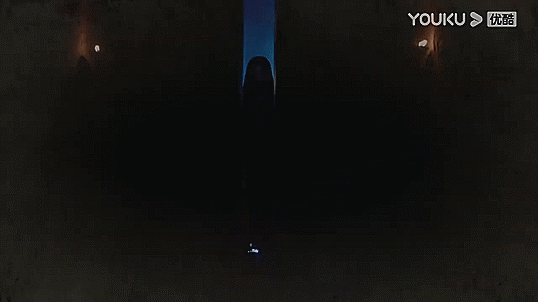
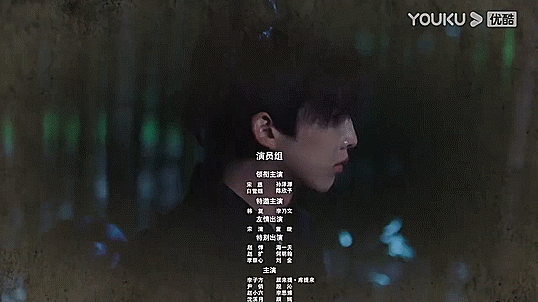

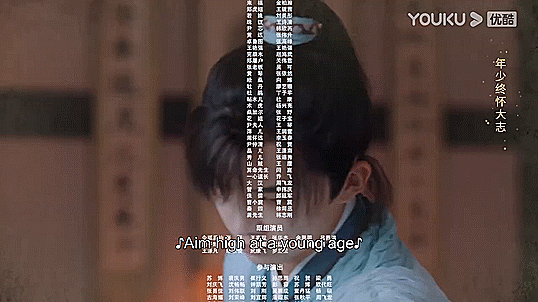
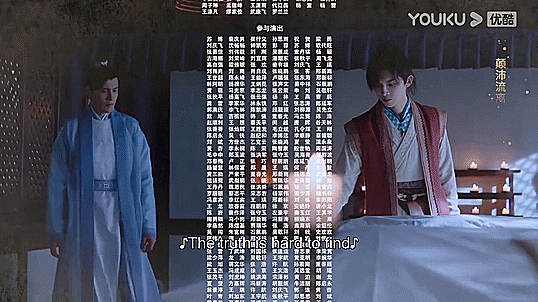
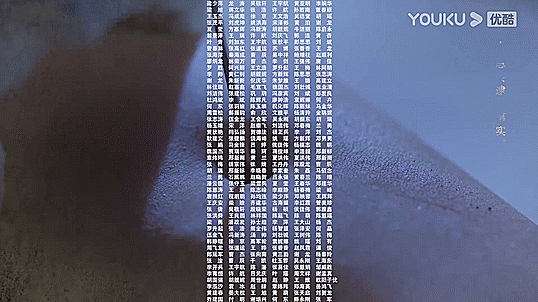
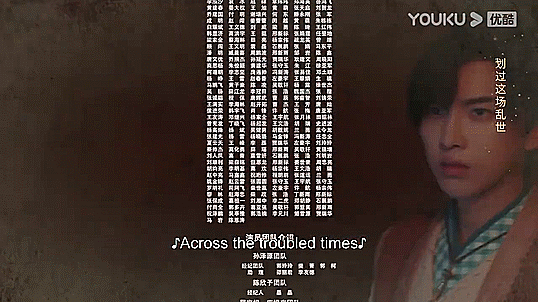
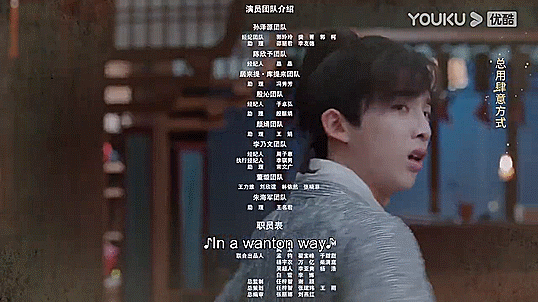
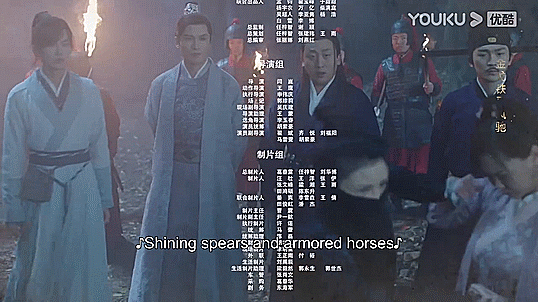

Cdrama: The Forensic Examiner Song Ci (2023)
Gifs of Ending of cdrama "The Forensic Examiner Song Ci"
[The Forensic Examiner Song Ci] EP01 | Mystery Detective Drama | Sun Zeyuan/Chen Xinyu | YOUKU
Watch this video on Youtube: https://www.youtube.com/watch?v=4JXl8x-ijro


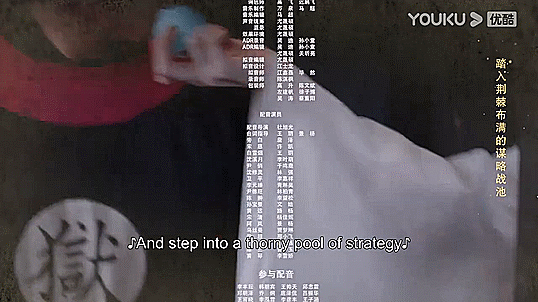

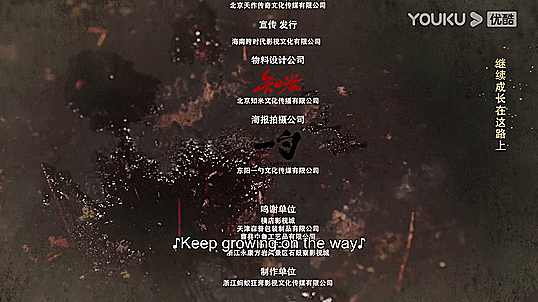
#The Forensic Examiner Song Ci#宋慈韶华录#Song Ci Shao Hua Lu#宋慈韶華錄#2023#Youku#youtube#cdrama#chinese drama#episode 1#1st episode#Sun Ze Yuan#Chen Xin Yu#Jurat Kutra#Li Si Bo#Lu Yan#Li Nai Wen#He Ming Han#Yin Qin#Yan Yan#Dong Xuan#Hai Yi Tian#Cheng Si Jia
3 notes
·
View notes
Text
best cdramas I’ve watched since the last one of these posts in 2022 (and some I’m still looking forward to seeing)
Heroes (watch on WeTV VIP | watch on bilibili) Adapted from the novel "Shuo Ying Xiong Shei Shi Ying Xiong" (说英雄谁是英雄) by Wen Rui An (温瑞安) starring Zeng ShunXi, Yang ChaoYue, Liu YuNing, Baron Chen and Meng ZiYi. I would’ve watched this thing for the cast only. Everyone is queer vibes. Not a flashy drama, but will emotionally shred you. The character development is totally worth it. Throughly entertaining, even when it punched you in the gut. 8/10
The Wind Blows From LongXi (watch on iQIYI VIP | watch on Viki) Adapted from novel "The Wind Rises in Longxi" (风起陇西) by Ma Bo Yong (马伯庸) starring Chen Kun and Bai Yu. I’ve been waiting for this drama for two years and it was worth every second of the wait. The cinematography in this thing is bonkers. The use of light and shadows, the muted colors, the indoor shots opening up into well-lit courtyards, the gritty sound mixing, the whole thing just blew my ass away. Chen Kun and Bai Yu are masters of their art. Fckn masterpiece. 11/10
Who Rules The World (watch on WeTV VIP | watch on Netflix) Adapted from the novel "Qie Shi Tian Xia" (且试天下) by Qing Ling Yue (倾泠月) starring Yang Yang, Zhao LuSi, and Xuan Lu. One of the rare romance dramas that really appealed to me. A well-balanced mix of court intrigue and martial world heroics. Unlimited blorbo potential. It’s hard to outshine Yang Yang (who gives major Mei Changsu vibes through like the first third of the drama) but Zhao LuSi and Xuan Lu together? Magnificent. Breathtaking. Brilliant. 8/10
The Legend of Hao Lan (watch on iQIYI VIP | watch on Viki | watch on tubi) starring Wu Jinyan and Nie Yuan. So this was like, The Story of Yanxi Palace cast, remixed. Was it great? Not really. Did I watch every episode? Yeah. I honestly think that Wu Jinyan could just make faces for 50+ sixty minute episodes, and I’d still watch every minute of it. Still, a fascinating take on the Warring States Period, and actually based on a woman who helped her son become the King of Qin, then ultimately the First Emperor of China. I think 99% of the budget went to costumes, and tbh, it was totally worth every penny. 7/10
(yeah, after all this, I rewatched Nirvana In Fire again)
The Silent Criminal (watch on Apple TV | watch on Bilibili | watch on iQIYI VIP | watch on Viki) starring Li Jiaming and Wen Sheng. So incredibly gay. Hilarious, yes, but predominantly gay. Murder, intrigue, suspense, pining; this little drama literally has everything. Did it impact my life and leave a long-lasting impression? Not really. But I was most throughly entertained. 7/10
My Heroic Husband (watch on Amazon Prime | watch on iQIYI VIP | watch on Viki) Adapted from the novel "Zhui Xu" (赘婿) by Fen Nu de Xiang Jiao (愤怒的香蕉). Starring Song Yi and Guo Qilin. Actually, the majority of Joy of Life cast is in this drama, including a cameo by Zhang Ruoyun in the very beginning. Cast aside tho, I fckn love this drama to pieces. Song Yi and Guo Qilin have amazing chemistry, and they’re so goddamn adorable together I can’t even stand it. The plot is far from complex but immensely satisfying. Excellent drama on a mediocre budget, one I plan to regularly rewatch. 8/10
Still waiting on:
Immortality - based on danmei novel The Husky and His White Cat Shizun by 肉包不吃肉 starring Chen Feiyu and Luo Yunxi (you can think I’m a clown but you’d be wrong bc I’m a wholeass circus)
Winner Is King - based on the danmei novel Sha Po Lang by Priest starring Tan Jianci and Chen Zheyuan
Step By Step Lotus - based on historical novel Return to Ming Dynasty as Prince by 月关 starring Zhang Binbin and Luo Yunxi
Eternal Faith - based on danmei novel Heaven Official’s Blessing by Mo Xiang Tong Xiu starring Zhai Xiaowen and Zhang Linghe
Joy Of Life Season 2 - based on wuxia novel of the same name by 猫腻 starring Zhang Ruoyun and Li Qin
A League of Nobleman - based on danmei novel The Society of Four Leaves by Da Feng Gua Guo starring Song Weilong and Jing Boran
Flying Phoenix - based on danmei novel of the same name by 風弄 starring Dai Jingyao and Shu Yaxin
The Story of the Bat - based on danmei novel Bat by Feng Nong starring Mao Zijun and Zhang Yao
The Longest Promise - based on xianxia novel Zhu Yan by 沧月 starring Xiao Zhan, Ren Min, and Zhang Yunlong
Song of The Moon - based on wuxia novel 奔月 by 蜀客 starring Zhang Binbin and Xu Lu
Story of Kunning Palace - based on the the web novel 坤宁 by Shi Jing starring Bai Lu and Zhang Linghe
Under the Microscope - based on the novel 显微镜下的大明 by 马伯庸 starring Zhang Ruoyun and Qi Wei
Till the End of the Moon - based on the web novel 黑月光拿稳BE剧本 by Teng Luo Wei Zhi starring Luo Yunxi and Bai Lu
179 notes
·
View notes









